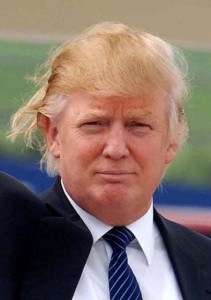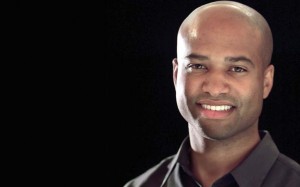Days after Chrysler and General Motors rebuked GOP presidential candidate Mitt Romney for incorrectly claiming they were transferring production – and jobs – from the U.S. to China, professional limelight seeker Donald Trump jumped into the fray.
The self-declared mega-millionaire ignored evidence to repeat claims about Chrysler, in particular, that had been used by the Romney campaign in an effort to win crucial votes in the swing state of Ohio, Trump tweeting that Pres. Barack Obama, “is a terrible negotiator. He bails out Chrysler and now Chrysler wants to send all Jeep manufacturing to China — and will!”
In an unvarnished reply, Chrysler Vice President Ralph Gilles, the maker’s head of design and director of its SRT division, shot back, “You are full of shit.”
Gilles followed with a second Tweet, “I apologize for my language, but lies are just that, lies.”
The controversy was kicked off when the Romney campaign incorrectly interpreted a news report about Chrysler production in China. It noted that the maker – like virtually every competitor in the world – plans to start building Jeeps in the Asian nation to take advantage of its booming automotive market.
At a subsequent campaign rally, the GOP candidate declared that all Jeep production was being moved to China. That message was repeated in a series of commercials run in Ohio, a state whose vote many analysts believe will swing the presidential election either to Romney or Obama. The adds also made mention of GM’s expanding production in China, claiming it was also moving jobs out of the U.S.
(Chrysler CEO Marchionne calls out Romney over “inaccurate” Jeep China claims. Click Here for more.)
Ohio, which houses many Chrysler and General Motors plants, has been leaning towards the incumbent president as a result of his support for the 2009 bailouts that pulled the two makers out of bankruptcy.
Despite efforts to correct the Romney campaign claims, the commercials continued to air and the candidate continued to highlight his claims at Ohio rallies. So, earlier this week, Chrysler and GM both went public.
In a note sent to employees – and then released to the news media – Chrysler CEO Sergio Marchionne wrote, “I feel obliged to unambiguously restate our position: Jeep production will not be moved from the United States to China.” He used a slightly more polite word to dismiss the Romney claims as “inaccurate.”
In fact, even as the China claims were airing, Jeep was adding another 1,100 jobs with the start of a third shift at its Jeep plant in Detroit.
While GM spokesman Greg Martin also avoided the scatological reference, he suggested the Romney campaign was operating in a “parallel universe,” adding that the continued use of a clearly false claim was “campaign politics at its cynical worst.”
(Romney accused of personally profiting as 1000s of Delphi salaried retirees lost pensions. Click Herefor more.)
The irony is that the auto industry has traditionally sat on the sidelines, at least in terms of publicly participating in the political process. No surprise considering it could risk alienating buyers on both sides of the aisle. Behind the scenes, however, the United Auto Workers Union has traditional been active for the Democrats, while management has routinely favored the GOP.
This year, however, the bailout has become a contentious issue of debate between the Democrats and Republicans. While the process was begun by former GOP Pres. George W. Bush it was completed under the Obama Administration. Candidate Romney has repeatedly insisted the Detroit makers should have been allowed to fail.
Trump’s sudden injection into the debate surprises few. He floated a possible candidacy himself and even led the polls for a brief period early in the primary process. The mogul, known for his TV show and strange hair, frequently claimed the president was not American-born, a claim he continued even after Obama released his long-form birth certificate.
Then, last month, Trump offered millions to anyone who could locate the president’s college records.
Whether the oft-bankrupt mogul’s claims and Tweets actually have any impact on the political debate remains to be seen.



Way to go Ralph!